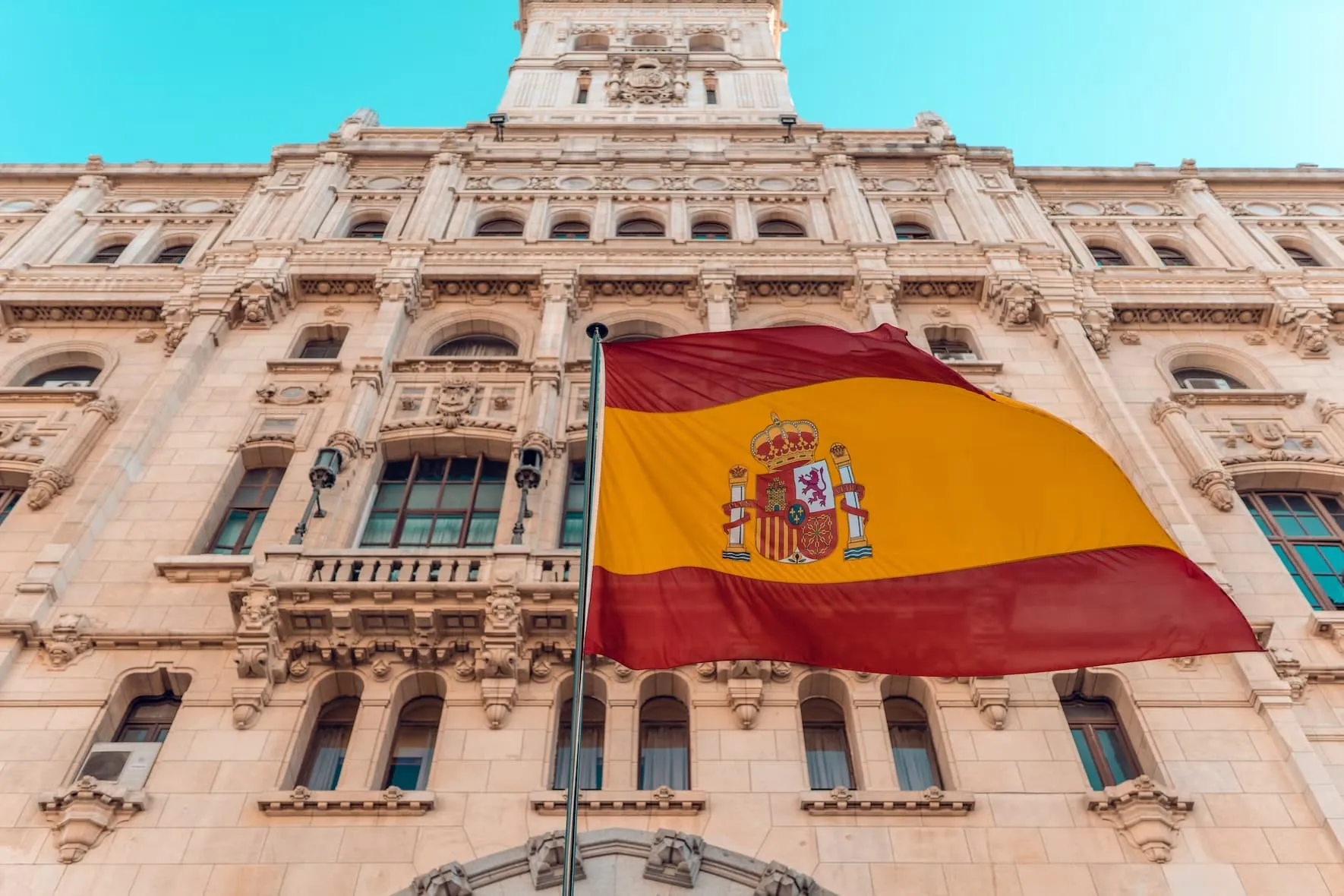Spain Researcher Visa
When a foreigner begins an R+D+i (research and development) or similar project in Spain, the company or university must apply for a research residence permit to bring the non-EU citizen into the country. The ease of obtaining this permission is just one of its numerous benefits.
Struggling to navigate the complex world of researcher visas in Spain? Allow the experts at Immigration Advice Service (IAS) to guide you through the process. Our team of top-notch lawyers is here to assist you every step of the way. So don’t let uncertainty hold you back – call us at (+44) 333 4149244 or chat with us online for personalised solutions to your visa needs
Read our 1001 reviews
Request a call back from our immigration experts
Benefits of Choosing IAS‘ Spain Immigration Lawyers
When it comes to obtaining a Spain visa or permit, IAS Spain immigration lawyers are well-equipped to help you.
With IAS’ track record of successfully helping clients visit or immigrate to Ireland successfully, we can help businesses and individuals achieve their goals.
Our dedicated immigration lawyers provide our services through a comprehensive and personalised approach. With IAS, you enjoy:

Expert support from an experienced immigration lawyer dedicated to your success



Support in gathering supporting documents and completing a high-quality application.



Confidence that your case is being handled by an experienced team.



In-house document checks done by lawyers who are accredited by the IBA in Madrid and Seville.
Services we Provide
What is the Researcher Visa?
When an international applicant accepts a position in Spain to launch a research or development program (R+D+i) rather than for a specific position, they will be required to apply for a residency for a researcher’s visa, which will allow her to stay in the country for a total of three years.
Article 72 of the Entrepreneurial Support Act on 27 September 2013, which revoked the former research residence requirement on the Immigration Act, governs the research permit. Only research workers referred to in article 13 and the first supplementary provision of Act 14/2011, of 1 June, on Science, Technology, and Innovation are eligible for this permit, which will allow them to live and operate in Spain as a professional researcher at a university, business, or research body.
Because of this, it can be obtained directly from Spain, and its resolution will be expedited in just 20 business days.
Similar to the student visa, a Tarjeta de Identificación de Extranjeros (TIE) or physical residence card is required only if the research project lasts more than six months. The applicant’s immediate family members may also be included and considered for a work or residence visa. If you want more help, you can contact Immigration Advice Service by calling (+44) 333 4149244. Our consultants are always available for help and guidance.


Who is This Permit for?
This residency visa is open to applications from 5 categories of non-EU citizens:
- All foreign nationals who work as educators in Spanish universities, business schools, and other higher education institutions.
- Non-native speakers who will be taking on scientific research or technology innovation projects at a Research and innovation firm.
- Academics who have signed contracts with research institutions (public or private).
- Research workers in the fields of Science, Technology, and Innovation. Article 13 of the 1 June 2011 law, No. 14/2011, provides the relevant definition.
- Additionally, a PhD student can show that they are participating in a university-sponsored research project. In that case, they will not need to apply for a student visa to study in the country.
What are its Length and Validity?
This residency authorisation for research purposes is valid for three years or the complete validity or duration of the labour agreement or contract (if shorter).
A TIE or physical residence card (PRC) should not be applied for by a foreign national whose stay will be less than six months. This card can be renewed automatically every two years if the same conditions are met.


Main Requirements for Researcher Visa
The following is a summary of all the criteria that must be met for your application to be considered:
- To participate, you must be at least 18 years old.
- You can’t be a resident of the European Union.
- You can’t be in an irregular situation (imigrating that takes place outside the law).
- You must not have a criminal record if you have lived in Spain or another European Union country within the last five years.
- While in Spain, you must have money set aside for your living expenses (as well as your family members if you include them in your application).
- You must have private or public health insurance
- You must provide the appropriate application fee.
- You should have a updated and complete passport.
What Steps Must you Take to Obtain Researcher Visa?
Step 1: You’ll Need to Apply for the Permit


The residence for research permission must be obtained before applying for the national visa. After this permit has been approved, you can apply for the visa by demonstrating that you meet the necessary criteria.
Step 2: Complete the Application Form and Compile the Necessary Documentation
The national visa application form must be downloaded, filled out completely, and signed before you can travel to the country.
When applying for a visa, you can choose between editions written in Spanish and the language of the nation where you plan to submit your application. All visa kinds use the same application form (except the Schengen visa).
Do your research and get ready to submit the necessary paperwork before applying.
Step 3: Request an Appointment
You can only apply for the visa in person or through an authorised representative.
In most cases, you’ll need to schedule an appointment using the website or email of the diplomatic mission or foreign office in your country of residence before applying for a visa there.
Step 4: Pay the Application fee for the Visa
Payment of the visa application cost is mandatory.
Step 5: Present the Required Paperwork at the Designated Location
To submit your application for the necessary visa and supporting documents, please visit the embassy mission or foreign office of your country of residence.
Step 6: Collect the Visa
Within one month of the date of notification of the favourable decision, the visa must be obtained in person by the applicant or their representative. The applicant will be given instructions on how to get their passport and other original documents back from the Consular Office.
As long as the visa is valid, the holder is considered a legal resident of Spain and does not need to apply for a Foreigner Identity Card. The Foreign Nationals Office or the appropriate Police Station is where you can apply for this card.
STEP 7: Entry into Spain
Remember that once in Spain, you may be required to perform the following procedures, depending on your profile.
- Getting a Social Security number (NUSS)
- Social Security Number Registration
- Identification cards for international travellers (TIE)
Research Visa Document Requirements
The foreign national must submit an in-person application for the visa (which will contain the permit) at the diplomatic mission or embassy where they currently reside within one month of the research organisation getting word that the permit has been approved. Essential supporting documents for a visa application include the following:
- A normal, valid passport or other travel document is accepted in Spain with at least four months of validity remaining.
- A certificate provided by the appropriate authorities in the individual’s country of origin or residency during the past five years states that the applicant does not have a criminal background for any activity representing an offence within Spanish law.
- A certificate from a doctor certifying that the traveller is free of any infectious diseases specified in the International Health Regulations.
- The original or a duplicate of the contract for employment with the Foreigner’s Office seal.
This individual must additionally pay the visa application fee. The employee has one month from the date of notification to obtain the visa in person. If they don’t, they’re essentially giving up on the application, which will be filed without them.
Researchers from outside the European Union who have started their studies in another member state can travel freely within the EU without a visa.
Can the Researcher Bring Their Family?
The visa applicant is welcome to bring their families if they so desire. The researcher or the beneficiary’s family members must apply for a family reunification visa. The beneficiary’s spouse, minor children, and parents in need of financial support are the ones who typically apply for this category of visa.
Requesting a family reunification visa while applying for residence for research is required.
If the researcher wants to apply for a family reunification visa to Spain, they’ll need proof that they can financially support themselves there. In addition, everyone in the household must fill out and apply.


What Procedures Does the Researcher’s Family Have to Follow?
Family members also have to apply for a visa in person at the relevant Spanish diplomatic post or consulate. They have to do this within two months of the application permission of union being granted. The following documents have to be presented by the family members:
- A passport or other acceptable travel document with at least four months of validity from entry into Spain. If the new family member is over the age of criminal responsibility, they must provide a certificate with no criminal history or equivalent covering the past five years.
- Original documents establishing familial and marital ties, de facto unions, and, if relevant, age and legal dependency.
- A certificate from a doctor indicating that they are free of any infectious diseases that could have a major effect on public health, as required by the World Health Organisation’s International Health Regulations.
Total Cost of Researcher Visa
The applicant must take into account the costs associated with applying for residence for research and family reunification, as well as any interviews that may be required while the visa is being processed—applying for a researcher visa costs between €60.00 and €80.00. Depending on the applicant’s country of origin, additional fees may also be associated with visa processing.
In addition, the researcher, and any accompanying family members, must pay visa application fees to enter the country. Family members’ ages and nationalities will affect the total cost.
Housing, transportation, food, and miscellaneous costs of life are also potential outlays. The researcher may have to renew their residence visa and cover any associated fees if their project is of a longer duration. Last but not least, health insurance is an important factor to consider.
Extension For Seeking Employment as a Researcher
You may remain in Spain for up to a year after completing your research under the Entrepreneurs Law if you seek employment in a field connected to your research or establish a business.
All researchers are given a year to locate employment after receiving this authorisation, which is identical to the authorisation for Job Search. This renewal takes effect on the day after the original permission expires.
The Unit for Large Corporations and Strategic Groups is where you should submit your request (UGE). You have until either 60 days before your permit expires or 90 days after it expires to renew your residency in Spain.


How Can IAS Help?
The process of obtaining a researcher visa for Spain can be daunting, with a long list of requirements and paperwork to navigate. But don’t let that discourage you. With the help of IAS, the process can be smooth sailing.
Our team of expert lawyers at IAS is here to guide you every step of the way. With years of experience and a deep understanding of the visa application process, they know exactly what it takes to ensure a successful outcome.
Let IAS help you make it happen. Call us today at (+44) 333 4149244 or chat with us online to get started and find answers to any questions that apply to your circumstances. Trust us, with IAS on your side, the Spain research visa is within your reach!
Table of Contents
Table of Contents will appear here.Legal Disclaimer
The information provided is for general informational purposes only and does not constitute legal advice. While we make every effort to ensure accuracy, the law may change, and the information may not reflect the most current legal developments. No warranty is given regarding the accuracy or completeness of the information, and we do not accept liability in such cases. We recommend consulting with a qualified lawyer at Immigration Advice Service before making any decisions based on the content provided.
Frequently Asked Questions
You must first have a job offer to get a work visa in Spain. Your employer will then be required to obtain a work permit to enable you to work legally in Spain. Afterwards, you should apply for a work visa at the Spain consulate in your home country.
The cost of work visas in Spain depends on where you come from. Generally, it costs between €80 to €700, with U.S. citizens and Canadians paying the highest fees.
You must submit the following documents when applying for your work visa:
- Visa application form
- Work authorisation
- Work contract
- Two biometric photos in line with the requirements
- Valid passport
- Police record
- Medical certificate
- Medical insurance
- Proof of accommodation
- Proof of professional qualification
- Licence or registration required to carry out work in Spain
- Proof of sufficient financial means


What our clients are saying
How our UK Immigration Lawyers can help
At the Immigration Advice Service our lawyers specialise in a wide range of UK visas, nationality and asylum applications and have represented clients in various successful complex and high-profile cases.















